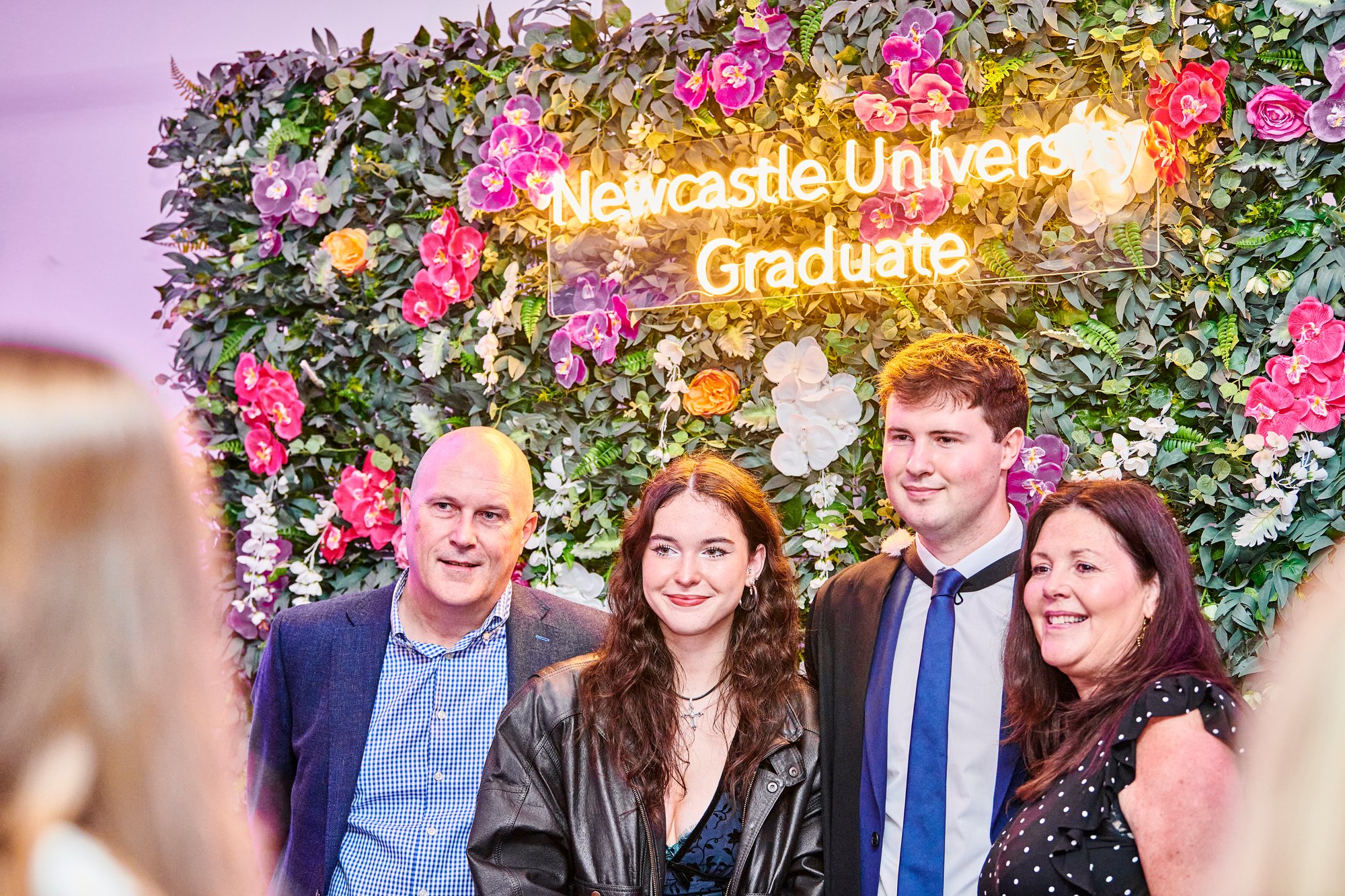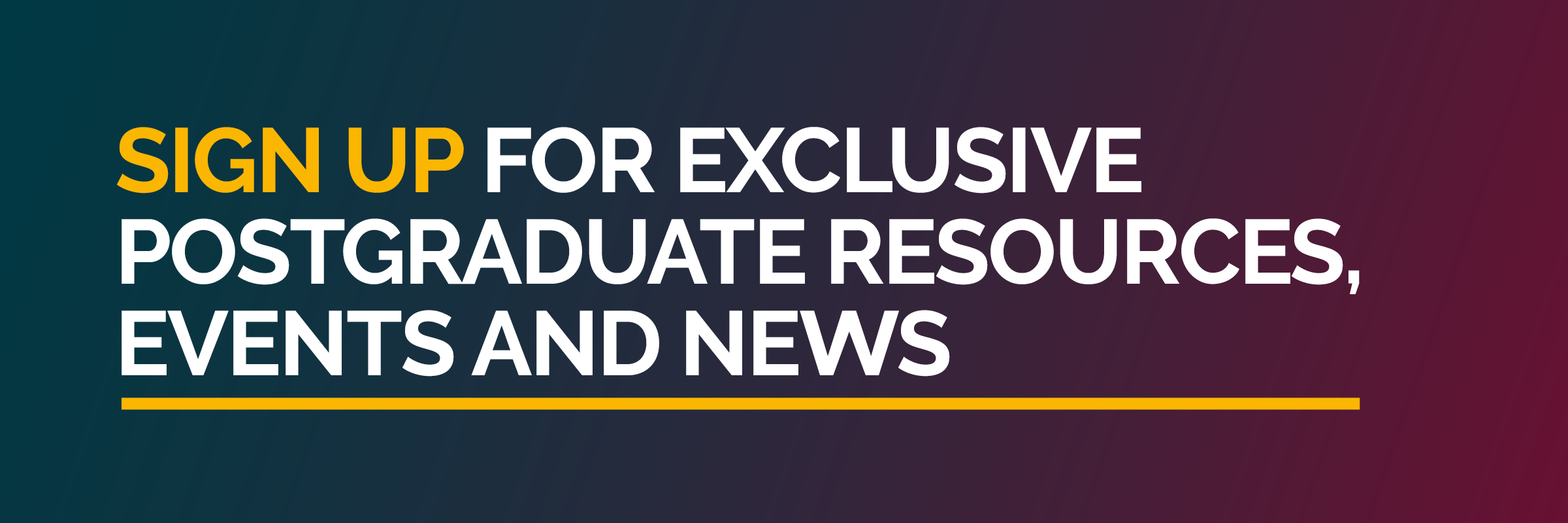How to apply for a Master’s degree | A guide for students
27 January 2026 | By: Jenny Shippen | 4 min read
Thinking of studying for a Master’s degree? It could be the best choice you can make to further your education and advance your career.
Whether you’re finishing up your Bachelor’s degree or returning to higher education, read on to find out more about how to apply for a Master’s degree, a step-by-step guide for applications, available funding opportunities, and more!
Contents:
- What is a Master's degree?
- Benefits of a Master's degree
- How to apply for a Master's degree: a step-by-step guide
- What happens next?
- Funding opportunities
What is a Master’s degree?
A Master’s degree is a level 7 qualification. It is an intense and focused postgraduate degree, and a popular option for students wanting to continue their education after earning their Bachelor’s. Studying for a Master’s degree full-time usually takes 1-2 years to complete, while studying part-time takes 2-4 years, depending on the area of study. Learning is fast-paced and thought-provoking, driven by real-world applications, cutting-edge research and your own interests.
Master’s degrees are split into two types:
- a taught Master’s degree (postgraduate taught/PGT) is the most common type and is delivered through lectures and seminars by academics specialising in a chosen subject
- a research Master’s degree (postgraduate research/PGR) offers a mix of taught modules and a research project - this helps you develop a deeper knowledge in your chosen subject area, giving you more insight into what it’s like to work in research
If you choose to take your higher education further, with a taught or research Master’s degree, you may also be eligible to apply for a PhD.

Benefits of a Master’s degree
Choosing to do a Master’s degree is a big step in advancing your career. Whether you launch straight into a Master’s after your Bachelor’s, or return to university after some time away, the career benefits of a Master’s degree can give you the edge and help you stand out in a crowded job market. This can greatly increase your chances of finding employment, especially in highly competitive fields. It can also help you define your career path, and focus on areas you want to specialise in.
How to apply for a Master’s degree: a step-by-step guide
Step 1: Search for a course
If you’ve done your research and know the university you want to attend and the course you want to apply for, you’re already on your way to a successful application.
If not, while you’re deciding, make sure you compare degrees using the course details available on university websites. Explore our courses by reading through the detailed module outlines, which include information on subject facilities, assessment types, awards, fees, and funding opportunities. We have over 300 postgraduate degrees to choose from, so you can be sure we have something for you.

Step 2: Check the entry requirements
The requirements to apply for a Master’s degree vary from subject to subject, but most require at least a 2:1 Bachelor’s degree, or an international equivalent. For more information, check out the course summaries available online.
If English is not your first language, you’ll also need to show you’ve reached a certain standard of English – both to succeed on your chosen programme and to meet visa requirements to study in the UK. You’ll need to supply an IELTS, TOEFL IBT, Pearson PTE score or equivalent, but entry requirements can vary across programmes so, again, check your chosen course. Check out our English Language Requirements for postgraduate study for further information.
Step 3: Check deadlines
You’ll need to check the application and funding deadlines. There are no official closing dates for applications to the majority of postgraduate courses, but be warned – there can be cut-off points if you want to be considered for funding.
You’ll find an application deadline in the ‘how to apply’ section on your degree programme webpage.
Step 4: Prepare your application
At Newcastle, the application process for a Master’s degree is quick and easy. Current students should apply through the Apply to Newcastle Portal using their existing Student Portal (S3P) login details.
New students and Education Agents will need to register for a new account. You should provide details, such as:
- personal statement
- programme of study
- academic transcripts or progress to date
- a copy of your passport
- English language requirements and test results (if required)
- up-to-date curriculum vitae (CV) detailing educational and professional experience
- intended funding sources
- postgraduate personal statement
- details of two referees
- relevant supporting documents (degree transcripts, research proposal, etc)
Potential Master’s students are encouraged to apply as soon as possible – at least six months before the start of your course – especially in highly competitive fields where places may fill up faster. You can apply before receiving your academic and English Language results; any offer you may be given would be conditional upon receipt of these.

Step 5: Write your personal statement
Writing a personal statement is an exercise to showcase your individuality, your strengths and achievements, and your chance to tell us why you are right for this course.
For more advice, read our student Kristina’s top tips for writing a personal statement.
Step 6: Apply through the application portal
Unlike undergraduate courses, most Master’s degree applications are made through universities, with some exceptions being made through UCAS Postgraduate.
You can apply online at: applyto.newcastle.ac.uk
Step 7: Complete and submit your application
There are 12 sections to complete within the application process, and you can save your work as a draft at any time. Some courses may have additional questions or requirements that need to be answered, so make sure you plan your responses carefully.
What happens next?
Once we’ve received and considered your application, a formal letter will be sent to you (and your agent, if you are hoping to join us from overseas) by email, outlining our admissions decision. Similar to undergraduate degrees, you will receive a conditional or unconditional offer. If your offer is conditional, you’ll need to work towards meeting the conditions of that offer. For more information about what you need to do and when, check out our Offer Guide.
Newcastle University aims to respond to your application within 30 days, and you can track the progress of your application via the Apply to Newcastle Portal. If you are successful, you will be given an offer to study and can start making arrangements for finances and accommodation. This will begin your journey into postgraduate education!
If you are an international student, you will need to secure an unconditional offer first before applying for your visa, as well as a copy of your passport and proof of English language proficiency. You can get advice and guidance on your student visa from our Visa Support Team.

Funding opportunities
Students in the UK usually fund their studies using a combination of formal funding such as scholarships and bursaries, together with loans, savings and part-time work.
Most funding opportunities are advertised between September and May, and it is recommended that you start your research for funding early – up to 12 months before your year of entry – as formal funding is very competitive.
- Tuition fee discounts
- All graduates: 20% Graduate Discount for all eligible Newcastle University graduates
- International students: 10% discount for close relatives of Newcastle University students and graduates.
- Awards, bursaries and prizes
- All students: support to meet additional costs associated with studying specific degrees. Non-repayable and awarded by various organisations, including charities and trusts.
- Loans
- UK students: the Postgraduate Master’s Loan Scheme is available to help with course fees and living costs. This is administered by Student Finance England. Where you live and your awarding body will dictate how much you can apply for; other eligibility criteria may also apply.

- UK students: the Postgraduate Master’s Loan Scheme is available to help with course fees and living costs. This is administered by Student Finance England. Where you live and your awarding body will dictate how much you can apply for; other eligibility criteria may also apply.
- Scholarships
- UK students: funded or partially funded scholarships are often based on academic merit or specific eligibility criteria. Non-repayable, they can be awarded by a variety of organisations, including Newcastle University, private companies, professional organisations, charities, trusts and the UK government.
- International students: we aim to create a strong global community and support this via scholarships for international and EU students. We also participate in scholarship schemes such as Commonwealth and Fulbright.

Ranked among the UK’s Top 10 for Postgraduate opportunities and services by the WhatUni Student Choice Awards 2025 - trusted recognition from real students
